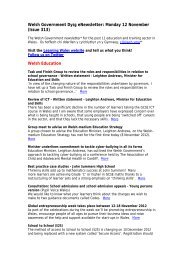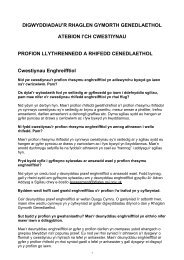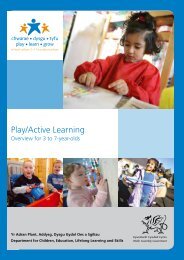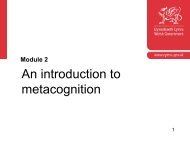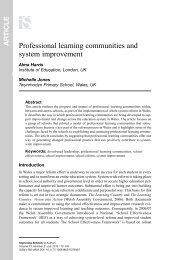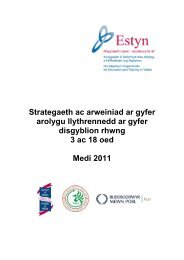Improving schools: full plan - Learning Wales - Welsh Government
Improving schools: full plan - Learning Wales - Welsh Government
Improving schools: full plan - Learning Wales - Welsh Government
You also want an ePaper? Increase the reach of your titles
YUMPU automatically turns print PDFs into web optimized ePapers that Google loves.
4. Roles, responsibilities and resourcesThe approach to implementation in <strong>Wales</strong> is set-out in Figure 15. It is a system approachand its effectiveness depends on being clear about respective roles and responsibilities ofdifferent education partners and, importantly, creating strong links between them to buildcollective capacity focussed on shared priorities. Responsibility for implementation of thereforms to drive school improvement rests with <strong>schools</strong> themselves and <strong>schools</strong> workingtogether. Regional consortia and local authorities, the ‘middle tier’, are responsible forenabling and supporting implementation at school level and making the connectionsbetween DfES through to the classroom. DfES sets the priority and ambition, the policyframework, high expectations for implementation and overseas the associated accountabilitymechanisms. DfES will only be hands-on with implementation in two ways. Firstly, wherethere is a national policy that might require new expertise, pace or standardisation across<strong>Wales</strong> (like the National Literacy and Numeracy Programmes), DfES will commission supportfor implementation and work with consortia on how best to do this. Secondly, where there isan obvious need for building capacity or local provision is weak, DfES will again commissionsupport to help fill gaps.Figure 15: Approach to school improvement at each point in the system<strong>Improving</strong> <strong>schools</strong>37



